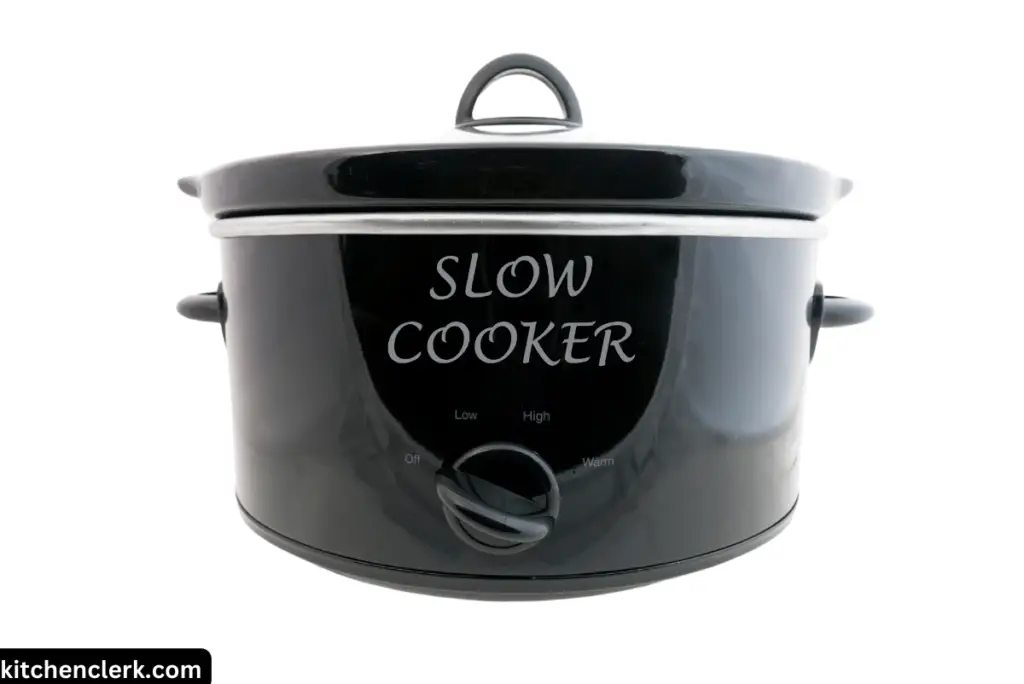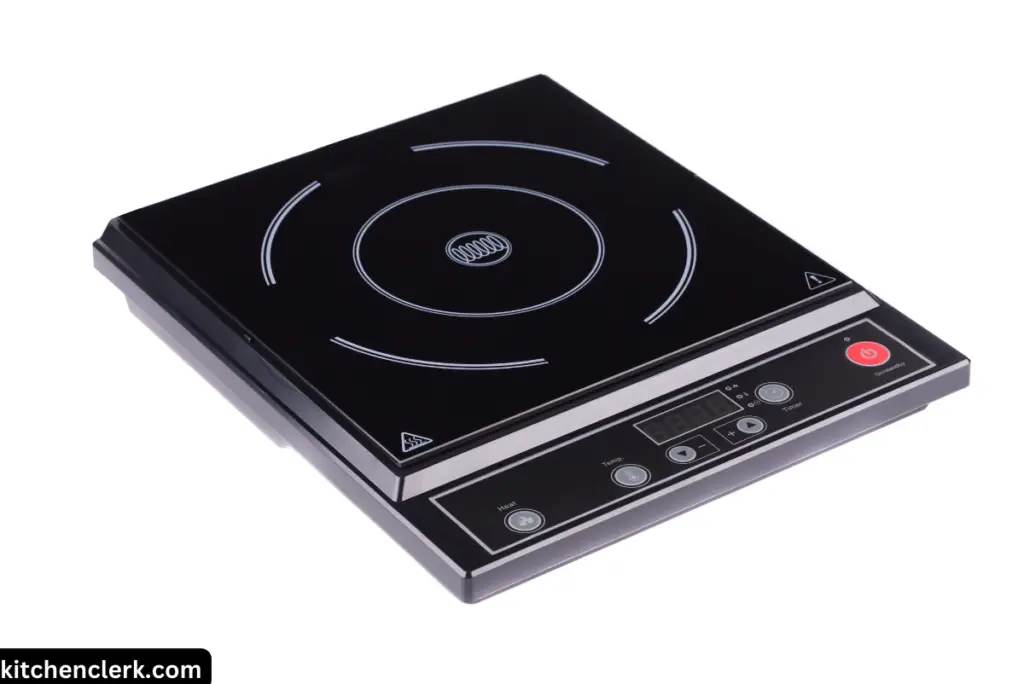When it comes to cooking, there are countless kitchen appliances available on the market that can make our lives easier.
Two popular options for cooking meals slowly and with precision are the induction hob and the slow cooker. I have used both of these appliances extensively and can provide insights into their features, benefits, and drawbacks.
In this article, I will compare the induction hob and slow cooker, taking into consideration factors such as cooking efficiency, versatility, ease of use, and overall convenience.
So let’s dive in and determine which appliance is the better choice for your kitchen.
Pros and Cons of Slow Cookers

Slow cookers offer several advantages and disadvantages that are important to consider:
Pros
- Convenience: Slow cookers allow you to prepare meals in advance and leave them to cook unattended for several hours. This is ideal for busy individuals or those who prefer to have their meals ready when they return home.
- Flavor and tenderness: Slow cooking allows flavors to develop and tougher cuts of meat to become tender and flavorful. Slow cookers are great for stews, soups, and dishes that benefit from long, slow cooking times.
- Energy efficiency: Slow cookers consume less energy than conventional ovens or stovetops, as they operate at lower temperatures over a longer period of time.
Cons
- Limited cooking methods: Slow cookers are primarily designed for slow, low-temperature cooking. They may not provide the same level of control and versatility as cooking methods like frying or boiling.
- Cooking time: Slow cookers excel at “set it and forget it” cooking, but this also means that they require several hours to cook a meal. If you’re short on time or need a meal quickly, a slow cooker may not be the best option.
- Texture and appearance: Slow cooking can result in softer textures and less caramelization compared to other cooking methods. This may affect the appearance and texture of certain dishes.
Pros and Cons of Induction Hobs

Induction hobs also have their own set of pros and cons:
Pros
- Speed and efficiency: Induction hobs heat up quickly and provide precise temperature control. They are faster than traditional gas or electric stovetops and can help save time in the kitchen.
- Energy efficiency: Induction hobs are more energy-efficient than conventional stovetops because they directly heat the cookware instead of heating the surrounding air. This can result in lower energy consumption and quicker cooking times.
- Safety: Induction hobs have built-in safety features such as automatic shut-off and child lock. The surface of the hob remains cool to the touch, reducing the risk of burns.
Cons
- Cookware compatibility: Induction hobs require compatible cookware, such as pots and pans with magnetic bottoms. Not all types of cookware can be used on induction hobs, which may require you to purchase new cookware.
- Cost: Induction hobs can be more expensive to purchase compared to other types of stoves or cooking appliances. However, they can save money in the long run due to their energy efficiency.
- Learning curve: Induction hobs operate differently than traditional stovetops, so there may be a learning curve when it comes to adjusting to the heat settings and cooking methods.
Induction Hob vs Slow Cooker
1. Induction hob has more cooking efficiency
In terms of cooking efficiency, the induction hob takes the lead. Induction technology uses electromagnetic fields to directly heat the cookware, making it much quicker and more energy-efficient than traditional gas or electric stoves. The heat is generated directly in the base of the pot or pan, allowing for precise temperature control and even heat distribution. With an induction hob, you can achieve rapid heating and precise temperature adjustments, giving you more control over your cooking process.
On the other hand, slow cookers are designed to cook food at low temperatures over an extended period. While this is great for certain dishes that require long, slow cooking, it may not be ideal for quick meals or when you’re in a rush. Slow cookers usually take several hours to cook a meal, and while they are energy-efficient, they may not be as fast or versatile as an induction hob.
2. Slow Cookers are more versatile
When it comes to versatility, the slow cooker shines. Slow cookers are excellent for preparing stews, soups, pot roasts, and other dishes that require long, slow cooking. They are also great for keeping food warm for extended periods, making them convenient for dinner parties or potluck events.
Slow cookers often come with various settings, such as low, high, and warm, allowing you to adjust the cooking temperature according to your recipe’s requirements. They can be left unattended for hours, making them perfect for busy individuals or those who prefer to have their meals ready when they return home after a long day.
While induction hobs are efficient and quick, their versatility is not as broad as that of a slow cooker. Induction hobs are best suited for tasks such as boiling, frying, and stir-frying, but they may not offer the slow, low-temperature cooking capabilities that a slow cooker provides.
3. They are both user friendly
Both induction hobs and slow cookers are designed to be user-friendly, but they differ in terms of their operation and functionality.
Induction hobs typically feature touch controls, allowing you to adjust the heat settings with a simple swipe or tap. They often come with safety features such as automatic shut-off and child lock, making them safe to use in households with children. Cleaning an induction hob is relatively easy, as the smooth surface can be wiped clean with a damp cloth.
Slow cookers, on the other hand, are straightforward to use. You simply need to place the ingredients in the pot, select the desired cooking temperature and time, and let the slow cooker do its work. Many slow cookers also come with removable crocks, making cleanup a breeze.
Overall, both the induction hob and the slow cooker offer ease of use, but the specific needs of your cooking style and preferences will determine which appliance is more convenient for you.
Is it Cheaper to Use a Slow Cooker or an Induction Hob?
When it comes to the cost of using a slow cooker versus an induction hob, there are several factors to consider:
1. Energy efficiency
Slow cookers are designed to operate at low temperatures over long periods, which makes them inherently energy-efficient. They use less energy than conventional ovens or stovetops. On the other hand, induction hobs use electromagnetic fields to heat the cookware directly, which makes them more energy-efficient than traditional gas or electric stoves.
However, they may consume more electricity than a slow cooker when used for extended periods or at high heat settings.
2. Cooking time
Slow cookers are designed to cook food slowly over several hours, which means they are typically left unattended for longer periods of time. This prolonged cooking time can result in higher energy consumption compared to a quick-cooking induction hob. If you’re looking for fast cooking and shorter cooking times, an induction hob may be more cost-effective.
3. Cooking method
The cooking method you choose can also affect the cost. Slow cooking with a slow cooker often involves cheaper cuts of meat or legumes that require less energy to cook over long periods. On the other hand, an induction hob allows for precise temperature control, which can help you cook more efficiently and avoid overcooking or wasting energy.
Is Induction Hob More Convenient to Use?
In terms of overall convenience, choosing between an induction hob and a slow cooker depends on your cooking needs and lifestyle.
If you prefer quick and precise cooking with the ability to adjust temperature settings and cook a variety of dishes, an induction hob is the better option for you. It offers efficiency, versatility, and the convenience of rapid cooking.
On the other hand, if you enjoy slow-cooked meals and the convenience of leaving your food to simmer for several hours without needing constant monitoring, a slow cooker is the more convenient choice. It allows you to prep your ingredients, set the cooking time, and go about your day without worrying about overcooking or attending to the stove.
Conclusion
The decision between an induction hob and a slow cooker comes down to your personal cooking style and the type of dishes you prefer to prepare. Both appliances have their unique advantages and can greatly enhance your cooking experience, depending on your specific needs.
Both slow cookers and induction hobs can be cost-effective depending on your cooking habits and preferences. Slow cookers tend to be more energy-efficient for long, slow cooking, while induction hobs are faster and more efficient for quick meals. Consider your cooking style, budget, and energy consumption preferences when deciding which appliance is cheaper for you.
Have you used both an induction hob and a slow cooker in your kitchen? Share your experiences and preferences in the comments below.
